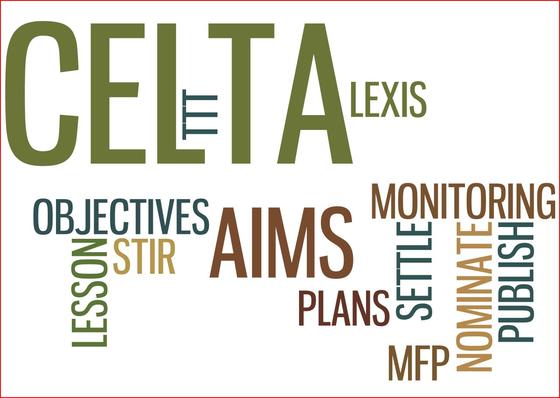Table of Contents
I have always found solace in a book, and it turned into one of my passions. People would often find me in a nook hiding behind a book and curled up. The best result was that I fell in a deeply rooted love for the English language, which was benevolent to me in return. Literature remained a constant over the years, so when life passed without any aim, it became a natural choice to turn this long-standing passion into a career.
Upcoming Batches of TEFL Course :-
| Batch | Mode | Price | To Enrol |
|---|---|---|---|
| Starts Every Week | Live Virtual Classroom | 26500 | ENROLL NOW |
CELTA Vs. TEFL
Are you having the confusion of which Certification to get? Well, we live in a technological world where information is abundant. The first thing I did was scour the internet for feasible options as there is quite a number. It all came down to teaching and further drilled down to ESL (English as a second language)/ EFL (English as Foreign Language) Teaching. The sheer amount of data was overwhelming, and then there were acronyms like TEFL, TESOL, CELTA, TESL that was confusing. They were sometimes being interchangeably used and sometimes being different terms.
Which is the right course? CELTA Vs. TEFL how to compare? What is the CELTA TEFL difference? How do I compare the CELTA Vs. TEFL certifications? How do I differentiate CELTA Vs. TEFL courses? All these questions jumped out at me as soon as I dived into the world of research. I, for one, was completely puzzled and confused.
It was a long way home, understanding, reading, sorting through relevant and irrelevant information took time and lots of effort. Finally, I think I reached a decision. But I felt that there would be someone who could benefit from all I had done. So, here I am trying to pen down some facts and hope this will be useful.
Let us first understand the CELTA Vs. TEFL courses. What are they?
What is CELTA?
CELTA is the Acronym for Certificate in Teaching English to Speakers of other Languages.
CELTA is one of the most recognized English teaching qualifications in the world. It is the qualification most employees often request. Whether you are a new teacher looking to establish your career with that first opportunity or want to tell employers that your teaching skills are at par with the best with a recognized certificate, CELTA is the qualification that will be accepted.
CELTA is a qualification for Teaching English Language as a foreign language. It focuses on developing hands-on skills with teaching practice, which will provide you with the techniques and the confidence you need to begin teaching as soon as you finish the course.
There are different ways of taking up CELTA, full-time, part-time, or as a blended course of combining online self-study and hands-on teaching. CELTA courses have at least 120 hours of contact time. The topics of the course include practical teaching skills and the theory behind them. Your assessment will be on written assignments as well as practical teaching classes. The minimum entry requirement is a proficient level of English, education to the standard of entry into higher education, and over 18 years of age. Authorized Centres teach CELTA courses on behalf of Cambridge Assessment English, which is the governing authority rewarding the CELTA certification.
What is TEFL?
TEFL Stands for Teaching English as a Foreign Language.

TEFL is the most popular and common term used for referring to teaching English abroad. A “TEFL certification” will refer to the training courses and certifications that are commonly asked by language schools and institutes around the world interested in availing services of English teachers. Other Acronyms used for TEFL are TESL (Teaching English as a second language), TESOL (Teaching English to speakers of other languages), and ESL (English as a second language, a term commonly used in English-speaking countries, and more often concerning the learning than the teaching). Both native speakers and non-English speakers of the language can successfully train to be English language teachers.
The use of these terms interchangeably has confused about the training courses for prospective students, teachers as well as employers. There is no global standard for the training of English language teachers, and it is essential to look into the actual components of the training program. There are many certificate programs of the short duration that does not have an academic affiliation resulting in credits or degrees that can be the right launching pad for beginning positions internationally.
But these programs and jobs will generally not provide sufficient training for a career unless you are already experienced and hold a degree related to the field. If you want a long term career, you may want to think about learning programs that result in I a university recognized certificate or degree program (MA/TESOL, MA/Applied Linguistics), particularly if one wants to work in higher education.
Another Aspect of the Confusing Certification Situation, Employers Now Generally Look For a Certificate that Reflects at Least the Following:
- At least 100 hours of coursework/interaction with the tutor
- A minimum of 6-20 hours of hands-on experience (live practice teaching and observation with actual non-native English class or student)
- An accredited curriculum from a recognized, well respected independent organization within the field;
- Instruction provided by a qualified instructor (who holds a proper Degree at Masters Level in this field)
Some of the familiar and respected TEFL accrediting bodies include TQUK, College of Teachers, ACCET. Courses offered directly through a Cambridge University (CELTA), Trinity University (Trinity certificate). Memberships in academic bodies are not equivalent to accreditation and should not be confused as to being equivalent or a substitute for accreditation.
CELTA Vs. TEFL
Now, you have got a basic understanding of both CELTA and TEFL. So, the discussion is now open on CELTA Vs. TEFL, which is better? What would be the correct option for you? The CELTA TEFL differences are few but significant. Then let us discuss the CELTA Vs. TEFL certification first.

CELTA Vs. TEFL Certification: Who Provides the Certification?
CELTA is affiliated explicitly with Cambridge University and Cambridge ESOL awards it. Because of its affiliation and association with Cambridge University CELTA has an outstanding reputation in the English teaching industry.
There is no specific body that provides TEFL certification. Some well-known and respected authorities include TQUK, College of Teachers, ACCET. Courses offered directly through an accredited university will also be considered accredited. Out of the numerous courses conducted by language schools and institutes may be certified by proper institutions others not.
CELTA Vs. TEFL Certification: What is the Course Length?
The minimum standard of a quality TEFL course for international acceptance is 100 hours of tutor contact and 6-20 hours of live practical teaching to real-life students. TEFL courses can be taken in person, online, or blended in full time/part-time/ weekend combinations. An ordinary in-person course International TEFL Course is four weeks long. A similar quality part-time class or interactive Online TEFL Course typically takes 2-3 months part-time but these. TEFL training courses with fewer than 100 hours and/or no practicum will not provide you with an internationally recognized certification.
CELTA courses offering comes in just two formats – entirely in person, or in a “blended” style, which combines online learning and classroom-based instruction. The full-time classroom course takes 4 to 5 weeks, while the part-time course can be anywhere for several weeks to several months. There is a blended course that combines the two, so you will attend some classes at am accredited center.
Must Check US Ranked No. 1 TEFL Certification Course Online
CELTA Vs. TEFL Certification: What is the Cost?

One of the significant CELTA TEFL difference is the cost of the courses. And this may be the deciding factor that you use to make your final decision. But there are other factors that you should take into account as well.
The CELTA cost varies greatly, but around 1,500 to 3,500 USD, it is only offered by centers accredited and approved by Cambridge ESOL. A TESL course in comparison with a cost between 200 to 4,000 USD. They may seem similar, but TEFL courses are generally less expensive than the CELTA.
CELTA Vs. TEFL Certification: Coursework
CELTA course work is quite intense. There are 6 hours of assessed teaching practice with, then four written assignments: one focusing on adult learning, one on the language system of English, the third one on language skills, and lastly, on classroom teaching. You must pass both components of the assessed teaching practice and the written assignments out of which the teaching practice holds more weight, and many people fail to clear the course.
Like the number of courses and recognizing bodies, the coursework varies tremendously. In contrast, some courses only have easy online work. The others require hours and hours of back-breaking and diligent work and include practical training in a real class. Still, as compared, the course work is usually more accessible than the CELTA course work.
So, the next point to talk about would the CELTA Vs. TEFL Courses. Some CELTA TEFL differences can be noted for these as well.
CELTA Vs. TEFL Courses: Prerequisites for the Course
With CELTA, your requisites are a lot more stringent than the average TEFL course.
Before you can enroll to start a CELTA course, you’ll need to go for an assessment interview
at a CELTA training center, where a course tutor will consider and decide whether you’re a suitable candidate for the course. They will also determine if your written and spoken English skills are of a high enough standard. Previous teaching, coaching, or tutoring experience is preferred to be accepted onto CELTA, but not necessary.
TEFL is mainly an entry-level English teaching certification that provides basic teacher training to teach non-native English speakers overseas. Apart from a keen interest in teaching, there are no rigid entry requirements for being accepted onto a TEFL course. Even previous teaching experience is not stressed upon. However, I would recommend you to at least have a native level or excellent grasp of the English language. It is useful if you hold a bachelor’s degree because this will improve your chances of getting a good teaching job overseas in a country with an employer of your choice after you have completed the course.
CELTA Vs. TEFL Courses: Quality of the Course

Being associated with Cambridge University, there are always high expectations with the CELTA course. Also, as there is only one awarding body, there is a uniformity of the curriculum. Each session is audited by an external assessor to maintain a consistent standard of teaching. This makes CELTA a comprehensive course for teachers who want to teach English to students in their home country or overseas. And you are always assured of the quality and content prepared.
With the TEFL course, it is tough to assess, and this again comes down to not having a single recognizing body resulting in a consensus of what is an excellent quality course rather than stipulated guidelines. Once again, the quality of the curriculum and maintaining it is entirely dependent on the school. Some are very rigorous while some are not, which can then be detrimental for you as a student.
One of the significant benefits of TEFL is that many good quality courses are offered online and tend to be more flexible. This means the course can be completed conveniently alongside studies or work.
These were the main CELTA TEFL differences that I found during my research. These CELTA TEFL differences may seem insignificant at times, but when you sit down to make the final choice, the smallest one may tip the balance to the other side. If you do find some more CELTA TEFL differences, make sure you share them and spread it.
So, we spent time discussing the CELTA TEFL differences. And we looked at CELTA Vs. TEFL certification, along with comparing CELTA Vs. TEFL Courses. But even after knowing all that, I still have a few thoughts plaguing me, and I am going to pen them down as well.
Is CELTA Vs TEFL: Is CELTA Equivalent to TEFL?

Both courses prepare teachers thoroughly for teaching English abroad, However, If your goal is to teach English abroad rather than in your home country, TEFL is the most widely accepted of the various ESL certification options. (TESOL/TESL are acronyms used regarding teaching English to non-English speakers in a native English speaking country)
CELTA originally meant Certificate in English Language Teaching to Adults however CELTA has now changed to a Certificate in Teaching English to Speakers of Other Languages.
But isn’t CELTA doing the same thing as TEFL? Then aren’t they the same?
Well spotted!
CELTA is a nothing but a branded TEFL certification that is awarded and governed by the Cambridge University’s non-profit assessment organization, Cambridge English Assessment
(Cambridge ESOL). In reality, these two certifications are the same. So think of CELTA as a designer version of a generic TESOL course.
So, to sum up, CELTA is considered as the industry standard because the quality of instruction con curriculum does not vary a considerable amount, Cambridge is very renowned and respected, and it is thus, it is always well received.
There are numerous TEFL courses, and while I’m not saying that all other TEFL courses are bad, defining the quality and standard is difficult. The problem is that because there are so many other TEFL courses, there is a lot of variability in quality and price.
So, the questions CELTA Vs. TEF, CELTA TEFL differences, CELTA Vs. TEFL courses, and CELTA Vs. TEFL Certifications require an altogether different consideration if you think like this.
Do I Need a CELTA or TEFL to Teach English Abroad?

The most straightforward answer would probably be ‘NO.’ But you are also unlikely to get a role abroad without any formal certification unless you have a degree. Add to that without formal training, would you know things about lesson planning, Handling a class (when you probably don’t know their language), course work to follow?
If you want to teach English in your home country or consider teaching English abroad as a career for a long time (and maybe aiming to settle abroad), investing in a CELTA course should be a prudent decision. A CELTA is an intensive teaching course for people like you who know that they want to settle for a career (two years or more) teaching English, either at home or abroad.
More and more people in their twenties are starting to travel around the world for a few years before settling down. TEFL is a basic level English teaching certification that provides elementary teacher training so you can successfully teach non-native English speakers overseas. This then proves to be an excellent way to earn back the costs while you travel around the world.
So, again, the basis of the CELTA Vs. TEFL choice is on your long term goals rather than CELTA Vs. TEFL Certification
IN the End….CELTA Vs TEFL
I have tried to present my findings and thoughts logically. But the choice is yours to make. Things may seem complicated at the outset with too much information and different opinions on CELTA Vs. TEFL debate, the CELTA TEFL differences, and CELTA Vs. TEFL courses.
But Just Keep in Mind a few Points:
- Both courses prepare teachers thoroughly for teaching English abroad.
- CELTA is a nothing but branded TEFL certification
- CELTA has one awarding body. Thus there is a uniformity of the curriculum.
- TEFL has several accrediting bodies, so it is difficult to assess the quality of a course.
- Many TEFL good quality courses are online and tend to be more flexible. This provides the convenience of completion of the course alongside studies or work, while CELTA is only available in set format.
- There are usually no entry requirements for acceptance into a TEFL course, while CELTA usually has stringent entry criteria and assessment.
- CELTA courses will typically have a higher price tag than TEFL courses.
- Keep in mind that the standards accepted in the industry for a right TEFL course are a minimum of 100 hours of TEFL training, 6-20 hours of teaching practice to real ESL students, and instructors teach the course with a Masters Level Degree. Finally, the course is accredited by a credible organization.
So get ready to take the plunge and embark upon your new journey. Travel or stay at home, but the final decision once you are happy with all the information.
FAQs

Q-1. What is the Accepted Industry Standard for an Excellent TEFL Course?
A right TEFL Course Should have:
At least 100 hours of coursework/interaction with the tutor
A minimum of 6-20 hours of hands-on experience (live practice teaching and observation with actual non-native English class or student)
An accredited curriculum from a recognized, well respected independent organization within the field;
Instruction provided by a qualified instructor (who holds a proper Degree at Masters Level in this field)
Q-2. What is CELTA?
CELTA is a teacher training qualification for people intending to teach English as a second or foreign language. CELTA’s centers are authorized and accredited by Cambridge English Language Assessment, part of the University of Cambridge. It can be taken either full-time or part-time.
Q-3. Is CELTA better than TEFL?
Inherently, CELTA and TEFL do the same thing; thus, we can figure out that CELTA is a branded TEFL certification. It is well associated with Cambridge University. However, there are many well known TEFL courses also available. The vast majority of the people who land a teaching job abroad every year do not have a CELTA, but a TEFL certification. So, both the certifications are well received, provided a well-renowned body accredits the TEFL course.
Q-4. Are the Entry Requirements the Same for CELTA and TEFL Courses?
You’ll need to go for an assessment interview at a CELTA training center, with a course tutor to decide whether you’re a suitable candidate for the course. They will also determine if your written and spoken English skills are of a high enough standard.
There are no rigid entry requirements for being accepted onto a TEFL course. Even the course doesn’t stress upon previous teaching experience. However, they recommend that you at least have a native level or excellent grasp of the English language.
Q-5. What is the cost comparison on CELTA and TEFL?
The CELTA cost varies greatly, but around 1,500 to 3,500 USD, it is only offered by centers accredited and approved by Cambridge ESOL. A TESL course in comparison will cost between 200 to 4,000 USD. They may seem similar, but TEFL courses are generally less expensive than the CELTA.
Also Check this Video
Recommended Programs
120-hours TEFL / TESOL
Online Certification Course
Ranked No. 1 Course | 100% interview guaranteed | Live Online Instructor-led TEFL Training & Certification | AAEFL Certified TEFL Course | Qualify for 12,000+ jobs from 6+ countries | With over 100,000 English teaching positions opening every year, immerse into the market of 2 Billion English learners today.
TEFL Certification Online
Course in USA
Ranked No. 1 TEFL Certification Course in USA | 100% Interview Guaranteed | Online Certification course in USA | instructor-led training and certification program of TEFL | Qualify for 12000+ jobs from 6+ countries.
Post Graduate Program
in TEFL
Ranked No. 1 Course | 100% interview guaranteed | Live Online Instructor-led Post Graduate TEFL Training & Certification | AAEFL Certified Post Graduate Program in TEFL | Qualify for 12,000+ jobs from 6+ countries | With over 100,000 English teaching positions opening every year, immerse into the market of 2 Billion English learners today.
Explore Popular Category



![Top 10 Countries for Teaching English Abroad in 2024 [Updated]](https://hh-certificates.sgp1.digitaloceanspaces.com/blog/wp-content/uploads/2020/05/10105810/pasted-image-0-15-270x180.jpg)
![What is EFL? How does EFL differ from ESL? 2024 [Updated]](https://hh-certificates.sgp1.digitaloceanspaces.com/blog/wp-content/uploads/2021/01/24123609/pasted-image-0-18-270x180.jpg)
![Ten Top TEFL Course in Idaho in 2024 [Updated]](https://hh-certificates.sgp1.digitaloceanspaces.com/blog/wp-content/uploads/2020/12/09120053/blog429-270x180.jpg)

![Top 10 TEFL Certification Courses In France: 2024 [Updated]](https://hh-certificates.sgp1.digitaloceanspaces.com/blog/wp-content/uploads/2021/01/24123443/pasted-image-0-16-270x180.jpg)
![Top 10 Online TEFL Certification in Denver: 2024 [Updated]](https://hh-certificates.sgp1.digitaloceanspaces.com/blog/wp-content/uploads/2021/02/20125318/pasted-image-0-2023-02-20T182257.811-270x180.jpg)
.webp)
